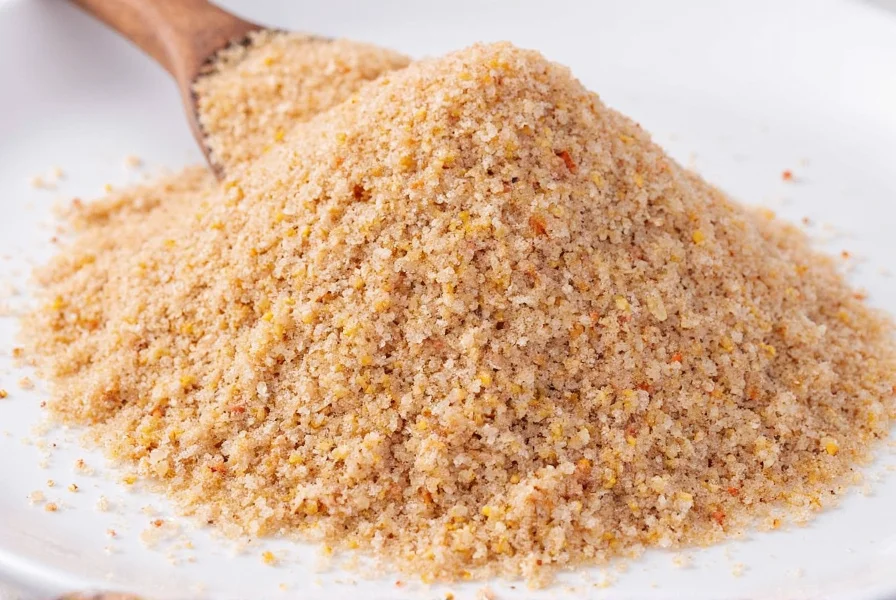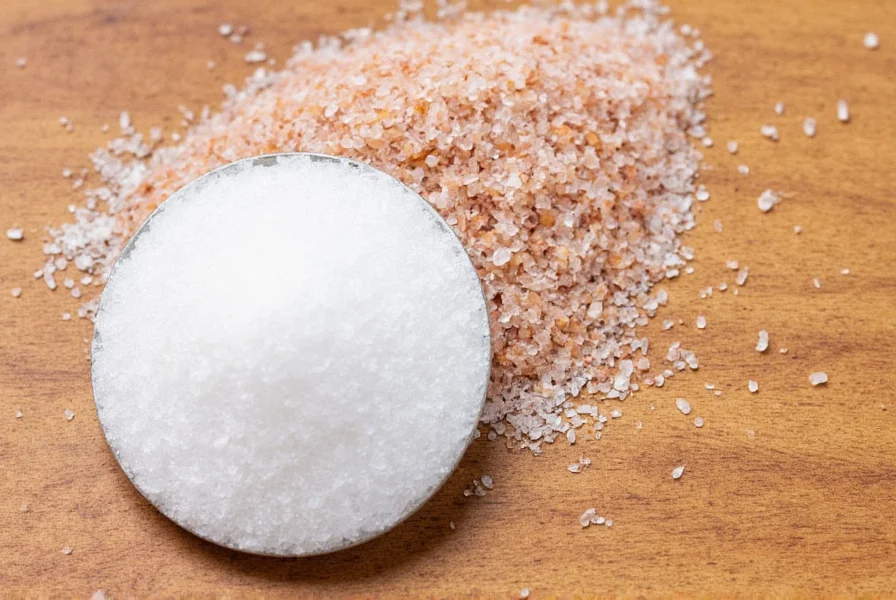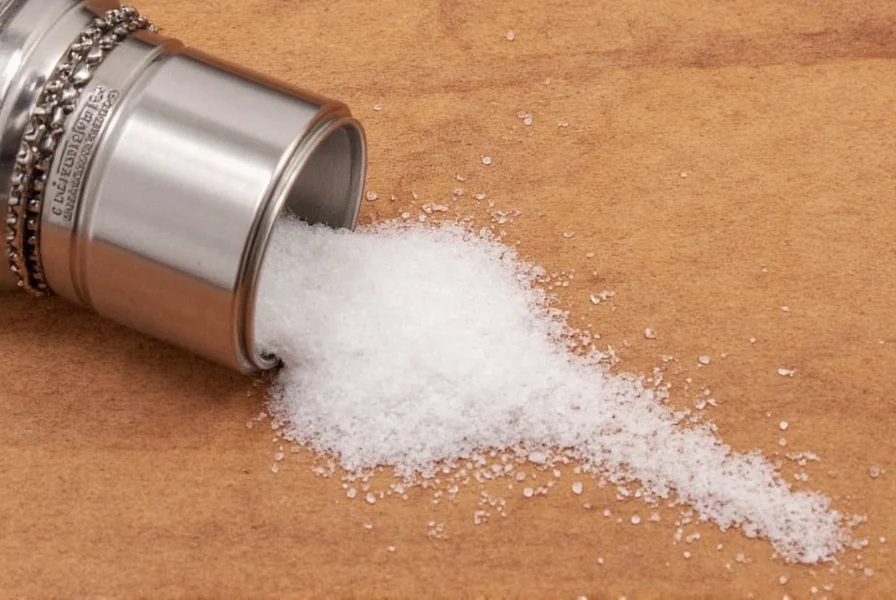Seasoned salt is a blend of salt and various herbs and spices, commonly including garlic powder, onion powder, paprika, oregano, and sometimes MSG or citric acid. This versatile seasoning enhances the flavor of meats, vegetables, soups, and snacks, making it a must-have in every kitchen.
- What Is Seasoned Salt?
- The Key Ingredients in Seasoned Salt
- Common Uses and Cooking Tips
- Buying Guide: How to Choose the Best Seasoned Salt
- Frequently Asked Questions
- Conclusion
What Is Seasoned Salt?
Seasoned salt is a mixture of regular salt and various herbs, spices, and flavor enhancers designed to elevate the taste of food. Unlike plain table salt, it provides a complex flavor profile that works across multiple dishes. The exact composition varies by brand, but all seasoned salts share the same core purpose: to simplify seasoning while adding depth of flavor.
The Key Ingredients in Seasoned Salt
While recipes differ, these ingredients form the foundation of most seasoned salt blends:
1. Salt
The base ingredient is always salt—typically table salt, sea salt, or kosher salt. It provides the essential sodium that enhances flavor and preserves food.
2. Herbs and Spices
These create the distinctive flavor profile. Common additions include:
- Paprika (smoky or sweet)
- Oregano
- Garlic powder
- Onion powder
- Dried thyme or rosemary
- Cayenne pepper (for heat)

3. Flavor Enhancers
Some blends include monosodium glutamate (MSG) for umami or citric acid for tanginess. These ingredients balance flavors and add complexity.
4. Anti-Caking Agents
Substances like silicon dioxide prevent clumping, ensuring smooth dispensing from shakers.
Common Uses and Cooking Tips
Seasoned salt's versatility makes it ideal for:
1. Meat Seasoning
Perfect for grilling chicken, roasting beef, or searing steak. Sprinkle before cooking for enhanced flavor without extra effort.
2. Vegetable Enhancement
Transform roasted potatoes, carrots, or zucchini with a sprinkle of seasoned salt for a flavorful side dish.
3. Soup and Stew Boost
Add to tomato-based soups or hearty vegetable dishes to deepen the overall taste.
4. Snack Seasoning
Elevate popcorn, chips, or nuts with a quick sprinkle for restaurant-quality flavor at home.
Buying Guide: How to Choose the Best Seasoned Salt
Follow these tips when selecting seasoned salt:
1. Check the Ingredient List
Opt for natural herbs and spices over artificial additives. Avoid excessive MSG or preservatives unless preferred.
2. Consider the Flavor Profile
Choose based on your cooking style—classic garlic-herb for versatility, spicy chipotle for grilled foods, or citrusy blends for seafood.
3. Read Reviews and Ratings
Look for consistent feedback on flavor, consistency, and authenticity from verified buyers.
4. Think About Usage
Specialized blends exist for specific applications. Smoky varieties work best for grilled meats, while citrusy options complement salads and seafood.
5. Prioritize Quality Brands
Trusted brands like Lawry's, McCormick, and Mrs. Dash offer reliable quality and consistent flavor profiles.
6. Evaluate Price vs. Value
Budget options work for occasional use, but premium brands justify investment for frequent cooking needs.
Frequently Asked Questions About Seasoned Salt
What is seasoned salt made of?
Seasoned salt combines salt (table, sea, or kosher) with herbs like garlic powder, onion powder, paprika, and oregano. Some blends include MSG for umami, citric acid for tang, and silicon dioxide to prevent clumping.
How is seasoned salt different from regular salt?
Regular salt contains only sodium chloride (and possibly iodine). Seasoned salt adds multiple herbs and spices, creating a complex flavor profile beyond basic saltiness. It's a multi-ingredient blend versus single-ingredient salt.
Is seasoned salt healthy?
Like all salt products, seasoned salt should be consumed in moderation per American Heart Association guidelines (max 2,300mg sodium daily). The added herbs provide flavor without extra calories, but sodium content remains the primary concern. Homemade versions allow control over sodium and additives.
Can I make my own seasoned salt at home?
Yes. A basic recipe: 4 parts salt, 1 part garlic powder, 1 part onion powder, 1 part paprika, plus smaller amounts of oregano, thyme, or black pepper. Adjust ratios to taste and omit unwanted ingredients.
How long does seasoned salt last?
Stored in an airtight container away from moisture and light, seasoned salt lasts 1-2 years. Herbs and spices lose potency over time—use within 6-12 months for peak flavor. Replace if aroma or taste diminishes.
Conclusion
Seasoned salt combines salt with herbs, spices, and flavor enhancers to transform ordinary dishes into flavorful meals. Whether you're grilling, roasting, or seasoning snacks, this versatile blend simplifies cooking while delivering restaurant-quality results. With the right choice and usage, seasoned salt becomes an indispensable tool in any kitchen.
| Ingredient | Role | Common Examples |
|---|---|---|
| Salt | Base flavor enhancer | Table salt, sea salt, kosher salt |
| Herbs & Spices | Flavor complexity | Paprika, oregano, garlic powder, onion powder |
| Flavor Enhancers | Umami and tang | MSG, citric acid |
| Anti-Caking Agents | Prevent clumping | Silicon dioxide |












 浙公网安备
33010002000092号
浙公网安备
33010002000092号 浙B2-20120091-4
浙B2-20120091-4